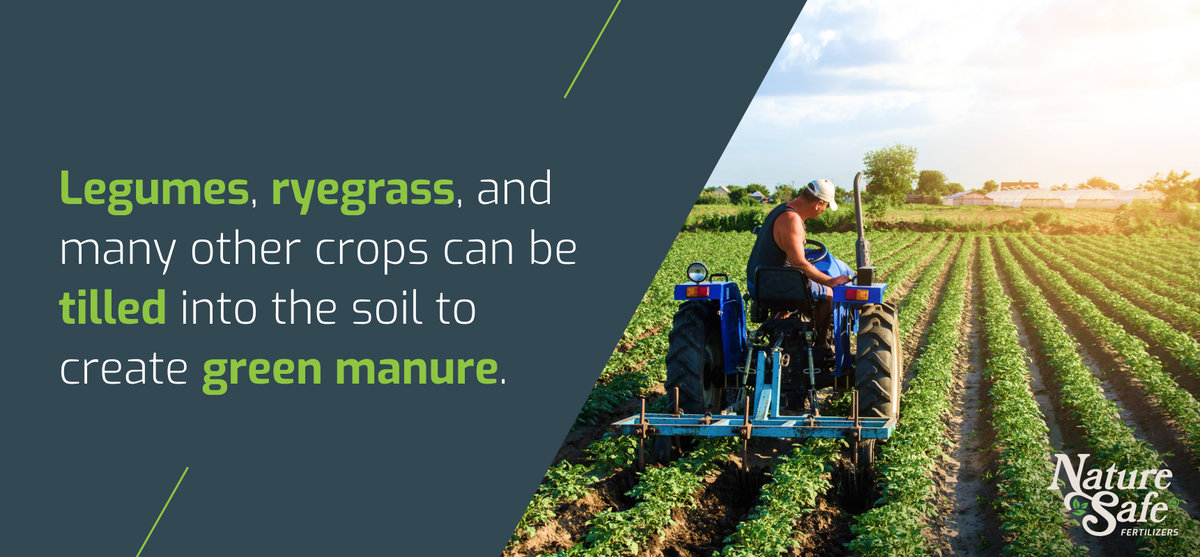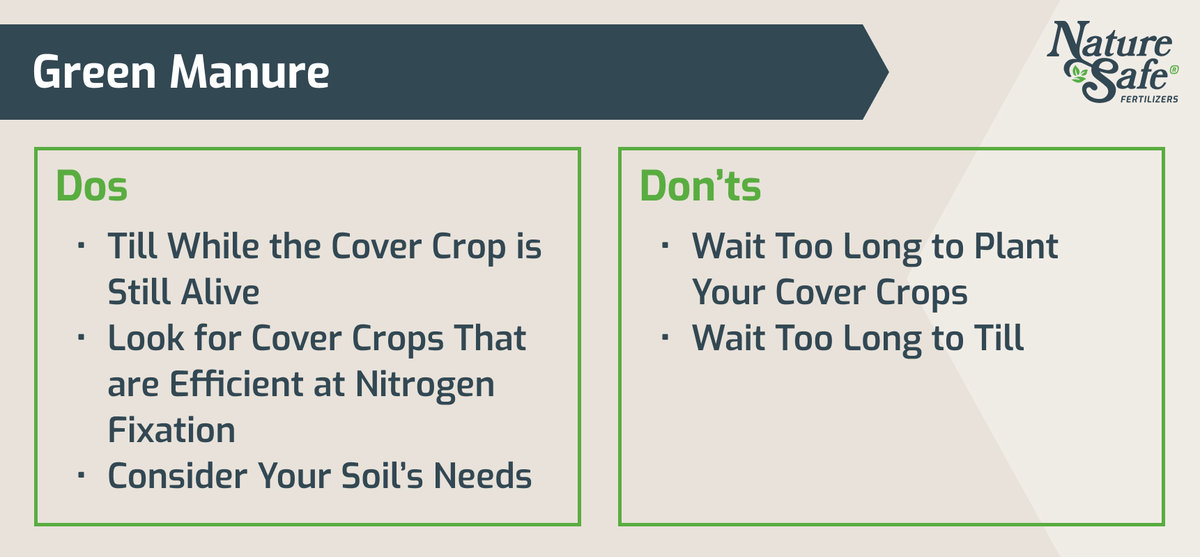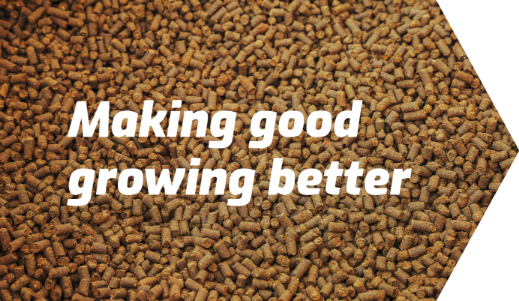
Organic farms don’t use synthetic chemical fertilizers. How do crops get those nutrients they need? There are a few options to create healthy soil that supplies most of the nourishment that all plants crave. One way to do it is with green manure.
What is Green Manuring?
For starters, green manure has nothing to do with actual manure. It’s just plants. Green manuring all starts with cover crops. These are crops grown off-season that provide erosion and moisture control, pest prevention, and nutrients. Once you’re ready to sow the next cash crop, you have two options for your cover crops:
- Let them die to create a ground cover
- Till them into the soil to create green manure
Tilling in green plants slowly releases the nutrients they contain, allowing them to be used by all of the lifeforms living there. Soil is healthier when it contains more decomposed organic matter, or humus.
Examples of Green Manure
Almost any type of cover crop can be used as green manure. Legumes like crimson or white clover are especially popular because they usually have a large biomass and they are super efficient at nitrogen fixation.
Ryegrass also will provide the soil with a significant amount of organic matter that can even last through the winter to be tilled in the spring.
Other favorite green manure crops include radishes, alfalfa, various oats, and hairy vetch.

Green Leaf Manure
There is also a version of this organic farming practice that uses green leaf manure. The difference between green manure and green leaf manure is that, in the latter, farmers forage for the plants they till into the soil instead of using crops planted in that particular field. Organic matter like leaves and twigs from trees and other plants nearby are common choices for green leaf manure material.
Green leaf manuring is popular on farms that have incorporated agroforestry, since they have more plants and organic matter to work with. As long as the items used for green leaf manuring have only recently fallen and/or are still alive, they’ll work to fertilize your crops.
Green leaf manure and traditional green manure benefits the soil and reduces the amount of artificial inputs that are necessary. They can be an important component to an organic farming program.
Green Manure Dos and Don’ts
Like all things in agriculture, what you plant and when depends greatly on the kind of climate you are growing in. Regardless of climate, however, there are some basic guidelines that agronomists and farmers everywhere can reference. Here are the most essential dos and don’ts:
Do Till While the Cover Crop is Still Alive
Green manure can only be effective if it’s tilled into the soil while the plant is still alive and green. The soil biota consumes the nutrients in the living stalk and leaves, getting it ready for the next crop planted.
Do Look for Cover Crops That are Efficient at Nitrogen Fixation
Many types of legumes, such as clover, hairy vetch, and alfalfa, are planted to supply atmospheric nitrogen to the soil.
Do Consider the Particular Needs of Your Soil
If creating humus for your soil is the goal, legumes can take a long time to grow. You might be better off planting rye or a type of grass.
Don’t Wait Too Long to Plant Your Cover Crops
Most cover crops do best planted in the spring or fall to last through the winter. In order to be effective green manure, they should be fully grown, and have significant foliage.
Don’t Wait Too Long to Till
The green manure needs to be incorporated into the soil about two weeks before the cash crop is planted. You still want those nutrients to be accessible to the new plants. Because the green manure method offers slow-released nutrition, tilling too late means your crops won’t get the nutrition at the right time.

Cover Crops vs Green Manure Crops
We’ve talked about cover crops before, and green manure comes from cover crops. While the terms are often used interchangeably, they are different concepts.
Cover crops are utilized in regenerative agriculture practices, and are usually meant to keep roots in the soil, so that the organisms in it remain happy and fed. Once the cover crops are grown, they are then incorporated into the soil where they become green manure.
But Wait—What About No-Till Farming?
One major trend in organic farming is a no-till system. Regenerative agronomists argue that disturbing the soil upends the ecosystem within it. Further, they say that over time, and with the use of regenerative farming practices, these ecosystems are rather self-sustaining.
Using the green manure method is impossible without tilling, and green manure enthusiasts will say that tilling fights soil compaction. Looser soil means more room for the flow of oxygen, nutrients, and water. Combined with the natural tilling from root systems, occasional soil disturbance can be a good thing.
Organic Fertilizer and Green Manure — a Match Made in Soil Heaven
Green manure is meant to be a natural fertilizer. While it does offer substantial amounts of nitrogen and small amounts of other nutrients to the soil, it may not be able to meet all of your soil’s needs. If organic farming is your goal, you have by no means failed if you find yourself looking for a phosphorus-loaded, potassium-rich, or high nitrogen organic fertilizer. Sometimes crops just need a boost in certain nutrients.
Some plants crave different nutrients at different growth stages. Green manure can provide a significant amount of nitrogen, but depending on the cover crop, other nutrients may be lacking.
To find the best organic fertilizer to compliment green manure, try Nature Safe Fertilizers. Our organic fertilizers help to create healthier soil and happier crops. Give us a call today, and together, we can make good growing better.
